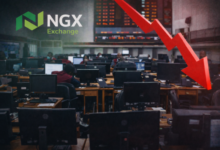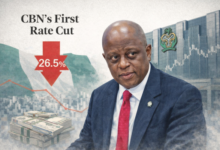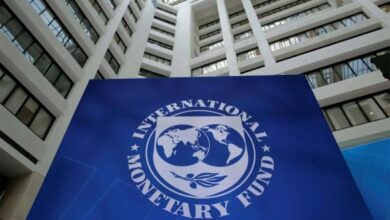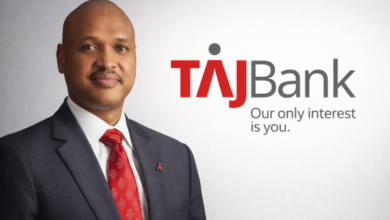
In a dramatic turn at the UN General Assembly in New York, U.S. President Donald Trump reaffirmed America’s “100%” support for the United Nations despite lambasting its inefficiencies. The statement reflects Washington’s complex but indispensable relationship with the world body—and raises key questions about global governance, peacebuilding, and investor confidence.
A Contradictory Moment on the Global Stage
The annual UN General Assembly is the world’s largest diplomatic theatre. In 2025, U.S. President Donald Trump used it to deliver a familiar mix of fire and reassurance.
During his national statement to world leaders, Trump blasted the UN for its handling of conflicts, irregular migration, and climate change—accusing the organisation of inefficiency and weakness. Yet only hours later, at a bilateral meeting with UN Secretary-General António Guterres, Trump declared:
“Our country is behind the United Nations one hundred per cent. I may disagree with it sometimes, but I am so behind it because the potential for peace with this institution is so great.”
The remarks encapsulate Washington’s enduring paradox: America is both the UN’s fiercest critic and its largest financial and political backer.
The UN–U.S. Relationship: From Founding Ally to Frustrated Partner
1. Historical Role
The United States was central to the founding of the UN in 1945. For decades, it has been the organisation’s biggest financial contributor, providing roughly 22% of the UN’s regular budget and over 25% of peacekeeping funds.
Investor Implication: U.S. funding decisions directly affect the UN’s capacity to operate humanitarian missions and peacekeeping, shaping stability in fragile markets.
2. Criticism vs Commitment
Trump’s dual message reflects a long-standing U.S. tension: calls for reform versus recognition that the UN is indispensable for:
- Global peacekeeping.
- Coordinating humanitarian aid.
- Shaping international norms (climate, migration, health, human rights).
Investor Implication: Policy volatility impacts global development programmes, influencing procurement, PPPs, and private-sector opportunities tied to UN operations.
3. Secretary-General’s Response
Guterres underscored America’s importance:
- “The U.S. has been our major political and financial supporter thanks to the generosity of the American people.”
- He credited Trump with “trying to get ceasefires” and “building blocks of peace agreements.”
This carefully balanced diplomacy highlights how dependent the UN remains on U.S. engagement—even when rhetoric is hostile.
Sector-by-Sector Implications
1. Peace and Security
The U.S. bankrolls and supports UN peacekeeping in hotspots from Africa to the Middle East. If Washington sustains its commitment, missions in South Sudan, Mali, and DR Congo may stabilise.
Takeaway for Investors: Greater security reduces risks for extractives, telecoms, and infrastructure projects in frontier markets.
2. Climate and Migration
Trump’s criticisms highlight deep U.S.–UN divides. While the UN prioritises climate resilience and migration frameworks, Trump remains skeptical of multilateral climate pacts.
Takeaway: Companies in renewables, clean tech, and ESG-linked industries must hedge against U.S. policy swings, even as UN frameworks remain supportive.
3. Global Governance and Trade
By reaffirming support, Trump signaled the U.S. will not abandon the UN as a convening platform. For global corporates, this reduces fears of outright American disengagement.
Takeaway: The UN remains a venue for standards-setting that influences global supply chains, from digital regulation to cross-border trade.
4. Humanitarian and Development Finance
U.S. funding sustains UN agencies like UNICEF, WFP, and UNHCR. Any disruptions affect refugee aid, global health initiatives, and poverty reduction efforts.
Takeaway: NGOs, aid contractors, and private suppliers tied to UN projects must track U.S. appropriations closely.
BRANDECONOMY Takeaways
- The UN is fragile without U.S. support. Trump’s 100% pledge reassures, but volatility in tone keeps uncertainty alive.
- Investors must price in geopolitical risk. From oil in the Middle East to rare earths in Africa, UN peacekeeping and aid underpin investment climates.
- Diplomacy is now transactional. Trump’s support will hinge on whether the UN delivers “value for money”—mirroring a corporate ROI mindset.
- Global companies must align with both tracks. Engage the UN’s multilateral agenda (climate, ESG, migration) while monitoring U.S. bilateral policies.
- Soft power is currency. U.S. rhetoric may be harsh, but reaffirmation signals that Washington values the UN as a stage for projecting influence.
Bigger Picture: Why This Matters Now
The UN is at a crossroads. Conflicts in Ukraine, Gaza, and the Sahel test its authority. Climate shocks and migration flows demand collective action. Without U.S. buy-in, the institution risks paralysis.
Trump’s declaration of “100% support” ensures the UN remains viable—but the conditional nature of that support forces it to pursue reform, accountability, and impact-driven outcomes. For business and investors, this means the UN is unlikely to disappear, but it will operate under tighter scrutiny from its largest backer.












